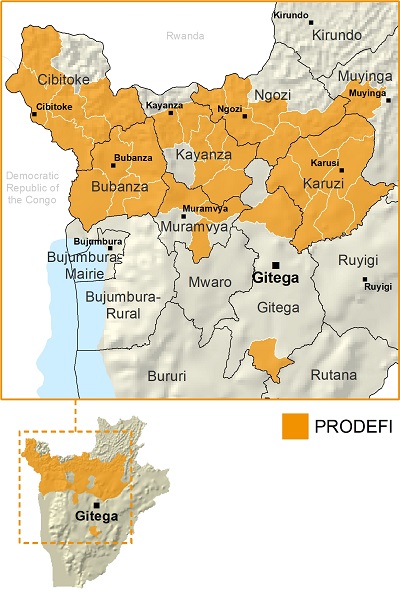Value Chain Development Programme
IFAD Asset Request Portlet
Publicador de contenidos
Value Chain Development Programme
- reduce poverty and improve food security in rural areas through the development of agricultural value chains
- empower smallholder farmers to play a central role so that they can achieve maximum value added in their production and increase their income.
The project will:
- assist public and private institutions, civil society and organizations of rural poor people in forming quality partnerships to promote two main value chains such as rice and milk and six other secondary value chains
- build the human, physical and technical capacity of poor smallholder farmers to enable them to protect their productive assets, increase their production of rice and milk and raise their incomes in a sustainable manner; and
- allow producers' organizations to make the most of the value added to their produce through better market access.
The programme will directly reach 77,500 rural family farm households, or approximately 387,000 people. Around 262,000 people as well as hundreds of grass-roots associations, economic interest groups and services providers will also benefit indirectly from the programme.
Funding from the European Union
The Project to accelerate the achievement of MDG 1-c (PROPA-O) has been funded by the European Union (EU). The overall objective of the project is to contribute to the achievement of MDG 1-c, which aims to "halve, between 1990 and 2015, the proportion of people who suffer from hunger".
Its specific objective is to improve in a sustainable way the availability, quality and access to food products as well as the nutritional situation in the Imbo and Moso regions.
At the design stage, PROPA-O planned to reach 134,000 people from 20,000 households and 80,000 children under five years of age, for a total of 214,000 people. The concept paper included that women should benefit from the project activities equally and constitute at least 40 per cent of the members of the bodies of producer organisations.
